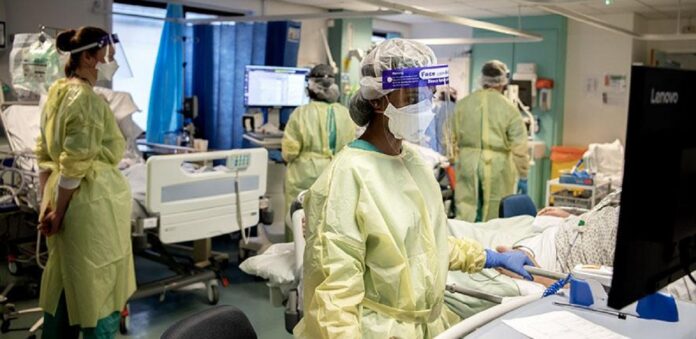Almost 40% of adults in the United States are obese, defined as having a BMI of 30 kg/m2 or more. Obesity is considered a significant risk factor for severe COVID-19. There is limited information on how obesity might affect immune cell responses in severe acute respiratory syndrome coronavirus 2 (SARS-CoV-2) infection.
Following SARS-CoV-2 infection, cells in the lining of the lungs, nasal cells, and immune cells in the blood show a blunted inflammatory response in obese patients, producing suboptimal levels of molecules needed to fight the infection, according to researchers at the Cambridge Institute of Therapeutic Immunology and Infectious Disease (CITIID) and Wellcome Sanger Institute.
There have been around 760 million confirmed cases of SARS-CoV-2 infection since the outbreak began, with over 6.9 million deaths. While some individuals have very little – or no – symptoms, others have significantly more severe symptoms, such as acute respiratory distress syndrome, which requires ventilator assistance.
Professor Menna Clatworthy is a clinician scientist at the University of Cambridge, studying immune tissue cells at CITIID alongside caring for patients at Addenbrooke’s Hospital, part University of Cambridge Hospitals NHS Foundation Trust.
She said: “During the pandemic, most younger patients I saw on the COVID wards were obese. Given what we know about obesity, if you’d asked me why this was the case, I would have said that it was most likely due to excessive inflammation. What we found was the absolute opposite.”
Clatworthy and her team analyzed blood and lung samples from 13 obese patients with severe COVID-19 requiring mechanical ventilation and intensive care treatment and 20 controls. Her team used a technique known as transcriptomics, which looks at RNA molecules produced by our DNA, to study the activity of cells in these key tissues.
The team found that obese patients had lower levels of activity among genes responsible for producing two molecules known as interferons (INF) and tumor necrosis factor (TNF) in their lungs and immune cells.
When they looked at immune cells in the blood of 42 adults from an independent cohort, they found a similar reduction in the activity of interferon-producing genes and lower levels of IFN-alpha in the blood.
The team replicated their findings in nasal immune cells taken from obese children with COVID-19, which is essential because the nose is one of the entry points for the virus. They found lower levels of activity among the genes that produce IFN-alpha and IFN-gamma.
Leptin, a hormone produced in fat cells that controls appetite, plays a role in the immune response. However, obese people may no longer produce sufficient additional leptin in response to infection, leading to inadequate stimulation of their immune cells. This could have important implications for treating COVID-19 and clinical trials to test new treatments.
As severe COVID-19 in some people can be associated with an overactive immunological and inflammatory response, medical professionals have turned to anti-inflammatory medicines to calm this response. Yet, those who are obese might not need anti-inflammatory medications.
Professor Clatworthy said: “This was really surprising and unexpected. Across every cell type we looked at, we found that the genes responsible for the classical antiviral response were less active. They were completely muted.”
Co-author Dr. Andrew Conway Morris from the Department of Medicine at the University of Cambridge and Honorary Consultant on the intensive care unit at Addenbrooke’s Hospital said: “What we’ve shown is that not all patients are the same, so we might need to tailor treatments. Obese subjects might need less anti-inflammatory treatments and potentially more help for their immune system.”
Journal Reference:
- Guo, Shuang A, Bowyer, Georgina S, et al. Obesity Is Associated with Attenuated Tissue Immunity in COVID-19. American Journal of Respiratory and Critical Care Medicine. DOI: 10.1164/rccm.202204-0751OC
